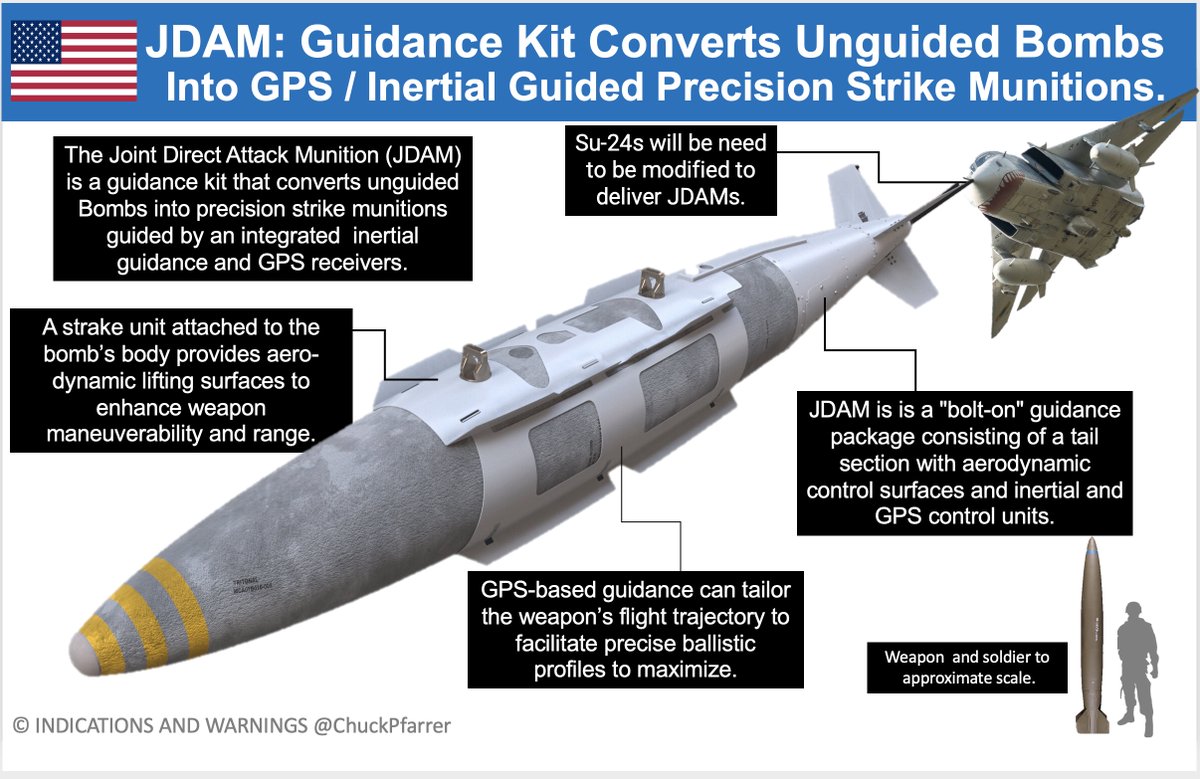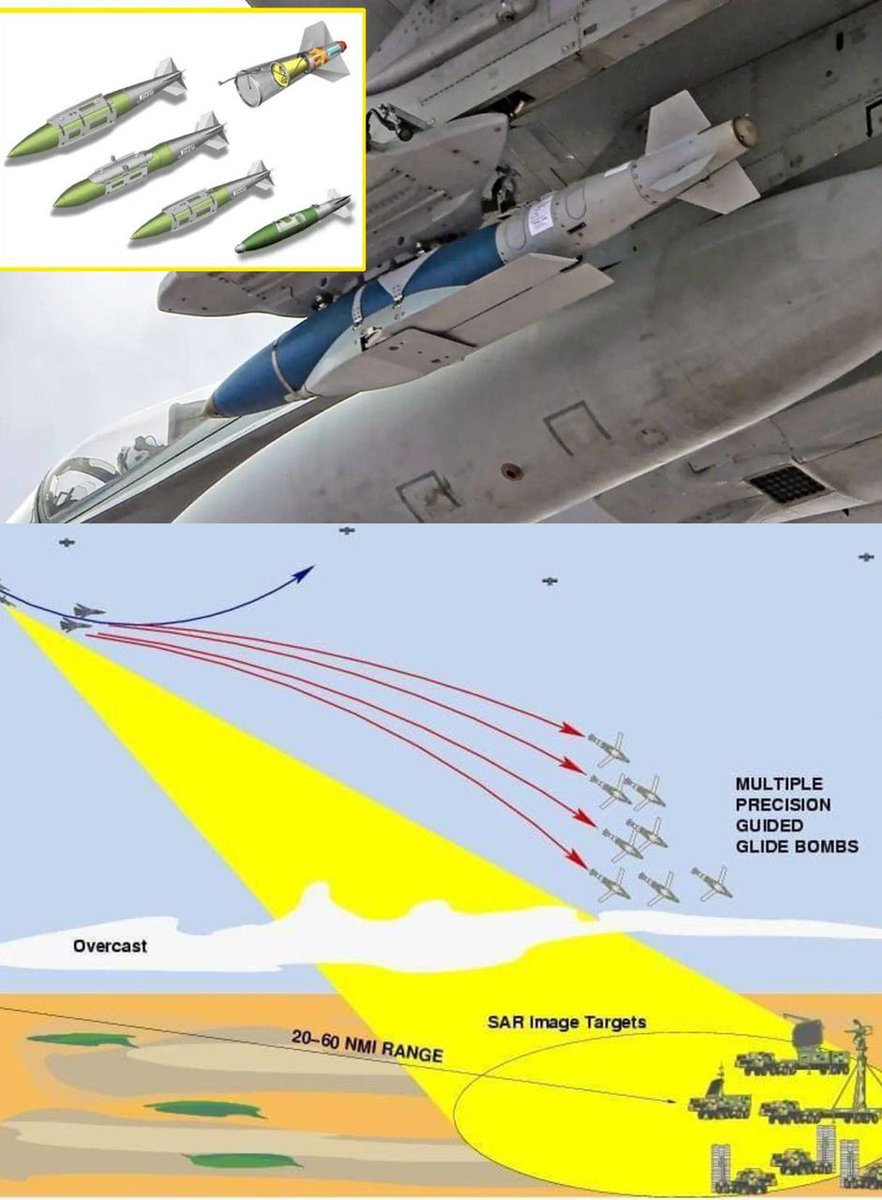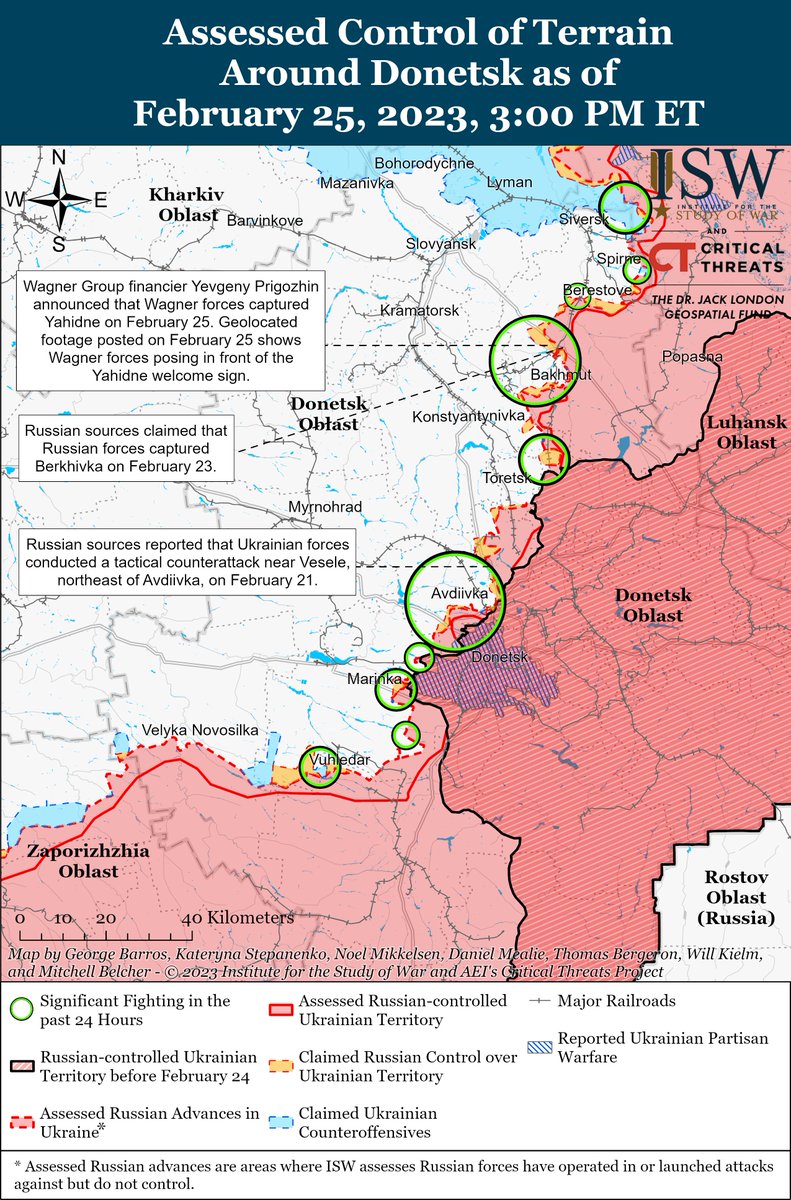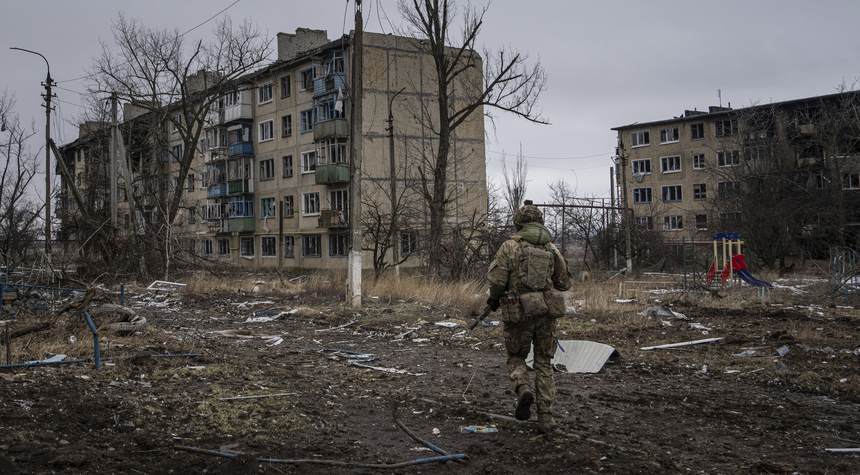Week 54. More NordStream Drama, Diplomatic Weakness, and the Bakhmut Flipflop
To say this has been an interesting week is an understatement.
House Speaker Kevin McCarthy declined to visit Kiev making him the only prominent Western political figure to do so. I’m not sure what, if anything, this means other than some of the House members closest to McCarthy are openly skeptical about Ukraine aid. Wolf Blitzer interviewed Ukrainian President Volodymyr Zelensky and, as far as I could tell, failed to make any news. Of course, it was on CNN, so that explains some of it. Ukraine’s national command authority did a backflip on the defense of the Donbas city of Bakhmut. They had contended for months the obvious point that the city, itself, was not militarily significant (this is the correct answer). Then, as things seemed lost, they reinforced the area to stop the Russian advance, and President Zelensky declared Bakhmut critical to the defense of Ukraine.
Here are links to my most recent updates.
Week 53. Zelensky Blows a Big Play, and Moscow Dodges a Drone Attack
Week 52. US and China Face off, Mystery Weapon Strikes, and Happy Anniversary
Week 51. Russia’s Slow-Mo Offensive Gets Underway
Week 50. The Calm Before the Storm
Week 49. Waiting for the Russian Offensive
Week 48. The Logjam Breaks and the Leopards Are About to Roam the Ukraine
Week 47. Gerasimov Shakes Up the Russian Army, and the Spring Offensive Looms
Week 46. Putin Shakes up the Army Command, and Tanks for Ukraine Are on the Way
Week 45: Putin Declares a Cease Fire, Zelensky Gets Putin’s Terms for Peace
Week 44. Drones Strike Russian Strategic Bomber Base, Prigozhin Makes His Move
Week 43. Zelensky Visits the Front Lines and Washington, Putin Tries to Push Belarus
Week 42. Ukraine Gets the Nod to Strike Targets in Russia and Some Tools to Do It
Many more are available at this link.
Politico-Strategic Level
Like the past few updates, most of the action is taking place in the politico-strategic realm. These, in my opinion, are the top items.
Another NordStream Theory
Monday, a new story appeared on the sabotage of the Russo-German NordStream pipelines. This one originated from “intelligence” sources, claiming that the perpetrators were part of a “pro-Ukrainian group.” Nothing more. That’s it. READ: NEW: U.S. Officials Say Ukrainian Group Blew up Nordstream 2.
German police have investigated the allegations, and no arrests have been made. The German newspaper Zeit offers more color, presumably from the German investigators.
According to investigations, it was carried out by a team of six people be. It is said to have been five men and one woman. So the group consisted of a captain, two divers, two dive assistants and a doctor who transports the explosives to the crime scenes and there. should have placed. The nationality of the perpetrators is apparently unclear. The Assassins used professionally forged passports, which, among other things, were used for the rental of the boat is said to have been used.
While a thousand times more plausible than Sy Hersh’s utterly stupid “investigative” report, in my view, it begs a lot of questions. Read the whole thread.
My opinion on the explosion remains the same.
Russia Launches Largest Missile Attack of the War
Early in the week, it appeared that the Russians had lost interest in their weekly missile barrages.
On the night of March 8-9, that changed. Russia launched at least 84 missiles, including six of their Kh-47 (NATO reporting name: Killjoy) hypersonic missiles. This is the largest single volley of this missile in the war. (The tweet says 81 missiles, but the Ukrainian Defense Ministry later increased that to 84.)
As in the past, the missiles targeted the electrical and heating grid as well as seemingly random civilian buildings.
Russia claimed the large-scale attack was retaliation for a Ukrainian attack on Russian territory earlier in the week. More on that below.
Ukraine’s Electrical Grid Continues to Improve
Kiev was heavily hit Wednesday night, but service has basically been restored. This is thanks to the donations of replacement equipment from Western Europe.
Kharkiv has recently turned its lights on at night for the first time since February 24, 2022.
Putin Lays Down the Law to His Defense Industry
Russia has been beset by war-related production and logistics problems that don’t seem to be abating. So this week, Putin put the defense industry on notice that if they can’t fix the problems, he’ll nationalize them. I’m not sure how that will help things, but the threat of it may focus minds.
Russian Diplomacy on its Heels
The invasion of Ukraine has undoubtedly hurt Russia’s diplomacy. Foreign Minister Sergei Lavrov can’t fly across Europe or to New York and the United Nations. When he has attended meetings of the UN General Assembly and OSCE virtually, the other members walk out before he can speak. Last weekend, he was in front of a friendly audience in India. Even there, he became the Rodney Dangerfield of international diplomacy.
When the USSR broke up, Russia tried to set up organizations that paralleled the European Union (the Eurasian Economic Community) and NATO (the Collective Security Treaty Organization). The members of the former are the powerhouse economies of Belarus, Kazakhstan, Kyrgyzstan, and Tajikistan. The latter comprises Armenia, Belarus, Kazakhstan, Kyrgyzstan, and Tajikistan. The economic organization is as moribund as the economies of the members. The security organization is in chaos as Armenia is engaged in war with Azerbaijan, and the CTSO hasn’t lifted a finger to help.
Last week, Secretary of State Antony Blinken was in Kazakhstan to try to build a new “regional diplomatic platform.” I don’t know how much traction it will gain, and I think the tweet below massively overstates what is happening, but playing on the other team’s side of the field is much more fun than playing on your own side.
Russian Culture Update
Some of the collateral damage to Russia in the wake of its invasion of Ukraine has been its waning cultural influence. Ethnic Russians in the Baltic States are much more aligned with their home countries than Russia. It seems that Russia is only attractive to the older population who grew up under communism. As I’ve noted before, this war has done more to build a Ukrainian national identity and make anything Russian radioactive than any action by the Ukrainian government.
In Moldova, where Russia instigated a civil war in the early 1990s and still maintains “peacekeepers” in a Potemkin “separatist republic,” there was a blatant attempt to bully the government out of supporting Ukraine by street demonstrations. This has had the opposite reaction Russia wanted. Not only were the protests ignored, but a critical step has been taken to permanently separate Moldova from Russian influence.
I’m noting this story because it has been circulating in the same circles that have claimed the Ukrainian government banning the Orthodox Church as an example of the illiberal nature of Ukraine and its staunchest allies. When Estonia gained independence, ethnic Estonians received Estonian passports, and ethnic Russians could either accept Estonian citizenship or remain Russian citizens and receive a resident alien passport. Russians can apply for Estonian citizenship but must demonstrate proficiency in the Estonian language. As one might expect, this has caused a precipitous drop of about 20 percentage points in the number of people identifying as Russian. Those continuing to identify as Russian are rapidly aging out of the population. If you expand the tweet, you’ll see that Zakharova is complaining that Estonia has limited firearms ownership to citizens.
Russia Invaded
Russia invaded Ukraine, so someone, no one is really sure who, decided to stage an invasion of a Russian border town. The action is blamed, depending on who is talking, on rogue actors in the Ukrainian armed forces, a deliberate provocation by the Ukrainians, and a false flag exercise by Russian security forces.
Clint Ehrlich, whose rabid pro-Russian propaganda makes some of the best parody on Twitter, offers his take. I’ll just note that no matter how slavishly subservient he is to the Kremlin, he doesn’t say Poland will invade and annex western Ukraine.
Best of Russian Television
As a son of Appalachia, my first response is, “what’s wrong with eating squirrels?”
Operational Level
At the operational level, the focus is on Russian supply problems and the forecasted Ukrainian offensive.
The 3423 tanks Chuck Pfarrer mentions are a floor, not a ceiling. They represent cases where video or images exist of these tanks being destroyed or suffering major damage and subsequently abandoned or captured. The actual number is higher.
As has been reported, combat staff of the Ukrainian Army are going through map exercises with NATO trainers laying out their offensive. I don’t know first-hand what they are doing, but I’d much rather be a staff officer on an exercise with troops than in a simulation.
As they say, predictions are like sphincters because everybody has one. That said, I think this story gets it right. Russia’s offramp to this war is depriving Ukraine of its political, military, and financial support in the West.
Is Russia Afraid of Escalation?
For a year, the foreign policy realists and Putin fanbois, to the extent those groups differ, have befouled themselves worrying about Putin using nuclear weapons. He could be, they claim, driven to that extreme if NATO keeps escalating. Lately, that fear of escalation has extended to Ukrainian strikes inside Russia. As Russia is bombing Ukrainian cities, it seems to me that Ukraine bombing Russian cities is achieving parity, not escalation, but whatever.
Russia is currently using Iran’s Shahed-131/136 suicide drones. Back in October, it was rumored that Russia would purchase Iran’s Fateh-110 and Zolfaghar short-range ballistic missiles; see Week 33. Mobilization Muddle, a New Era in Air-to-Air Combat Begins, and Another Lull Before a Storm.
According to the Financial Times, those negotiations are on hold because of Russia’s concerns that NATO might supply Ukraine with similar missiles.
Did deterrence work?
This news clip suggests another possible explanation.
It is also possible that the Russians are making this accusation to achieve a moral high ground (yes, I threw up a little in my mouth writing that) by declining to buy Iranian missiles and then claiming they were forced to buy them because Ukraine was using them. In other words, they might use pretty much the same rationale that Putin and his supporters have used to justify the invasion of Ukraine.
Prisoner Exchanges
These exchanges continue. Monday, 130 Ukrainians were released for 90 Russians. Most of them have been in captivity for nearly a year.
Operation Fortitude, Ukraine Style
Operation Fortitude was the Allied hoax to draw German forces away from Normandy to Pas-de-Calais prior to Operation Overlord. It involved the creation of a fictitious Army Group commanded by General George S. Patton, complete with message traffic and decoy vehicles.
For some time, the Ukrainians have used captured and disabled Russian vehicles as decoys.
Now, inflatable decoys are finding their way to the front.
Good ideas, it seems, are forever.
War Crime to Icon
The Russians have not been queasy about recording and posting on Telegram videos of prisoner executions and other atrocities. This casual brutality seems to be the nature of the Russian military. If you’ll recall, Wagner Group troopers in Syria posted video of themselves sawing a captured fighter in half, vertically, with a chainsaw, and of them beating a man to death with hammers. And who can forget the video of a Wagner deserter killed by a sledgehammer (Read Week 38. The Lines Clarify and Everyone Is Getting Ready for the Next Phase for more details).
Another video surfaced Monday that had a different twist. CONTENT WARNING: THE VIDEO CONTAINS A GRAPHIC EXECUTION.
The man is a 40-year-old soldier identified by the Ukrainian general staff as Oleksandr Matsievskyi. He was last heard from in early February and has been identified in the video by relatives.
Just like the Snake Island story early in the war, this man’s death is proving to be a propaganda bonanza for Ukraine.
New Weapons
Ukraine Gets US Smart Bombs
If you’ve been following the war, you know that Ukraine has been demanding longer-range munitions, particularly the US ATACMS short-range tactical missile, to enable it to strike targets deeper in the Russian rear areas to attack supply dumps, communications centers, and headquarters. The US has refused to release those weapons, but it has given Ukraine incrementally greater reach. General James Hecker, the Commander of US Air Force-Europe, has announced that the US will furnish kits to convert Ukrainian gravity bombs to Joint Direct Attack Munitions. These bombs can be dropped by an attack aircraft about 40 miles from the target.
Accompanied by aircraft using the AGM-88 HARM to punch a hole in Russian air defenses, they open the entire theater to air attack. Just how deep the Ukrainians use these will depend on the tactical skill and cojones of the Ukrainian Air Force.


Eastern European MiGs for Ukraine Finally Approved
Back in early March 2022, Poland and some other former Warsaw Pact nations offered to donate their Soviet aircraft to Ukraine. The US scotched the deal because escalation, doncha know? See Biden Junta Duplicity Revealed After Poland Declares MiGs for Ukraine Are Ready to Go. Poland has decided to send 29 MiG-29 fighters, and Slovakia will send 11; this will make up for about half the losses the Ukrainian Air Force has suffered over the last year.
Ukrainian Pilots in the US for Training on F-16
Two Ukrainian Air Force pilots are now in the US receiving training on the F-16. There is a lot of debate over how good an idea this is. This is billed as an assessment of the skill level of Ukrainian pilots. The F-16 is at least one generation more modern than anything in the Ukrainian Air Force, and it is essential to have an idea of how long pilot transition training will take.
Combat Operations
The combat over the last week has taken place in the same areas of Donbas. There is Bakhmut, where Russia has been attempting to take a heavily fortified area for nearly six months, and Vuhledar and Avdiivka, where the Russians have been attempting to launch a significant offensive.

Northern Front
Donbas
The main story is Bakhmut.
For nearly half a year, the Russians have been pressing on Bakhmut.
Late last week, it looked as though Bakhmut was on the verge of falling. The word on Russian Telegram sites was that the Ukrainian Army was withdrawing and claims that Ukrainian convoys were being destroyed. There was also imagery of bridges in Bakhmut being dropped, implying that a withdrawal was at hand.
Post mortems were written.
Monday, all of that changed. Suddenly the defense of Bakhmut was vital.
Reinforcements have been sent, and it looks like the situation has been stabilized.
My personal feeling is that the Ukrainians have gotten way out over their skis with the “victory in inevitable” message, and a reversal at Bakhmut will reverberate through European capitals. As I’ve said before, if the Russians take Bakhmut, they are immediately confronted with crossing a water obstacle and attacking up a defended ridge. The cute little arrows drawn on a map do not comport with geographical reality. In my view, the smart move would have been to conduct a fighting withdrawal out of Bakhmut to a prepared defensive line, force the Russians to relocate communications, air defense, and logistics forward, and fight the same battle again.
Southern Front
Zaporizhzhia
What’s Next?
I think it is safe to say that whatever offensive operation the Russians had planned is floundering. Ukrainian troops will complete their training on the Challenger 2 and Leopard 2 tanks, and the Bradley and Marder (among other) modern infantry fighting vehicles, in the next 3-4 weeks. Staff training should be finished by that time. In addition, the introduction of the JDAM places previously secure areas within the range of Ukrainian attacks. Then the question will be if the Ukrainians can put together an offensive that can breach Russian defenses and achieve a breakout at the operational level. If they can, we will see Russia forced to abandon nearly all of Ukraine except Donbas. If not, we’re in for a long grind.





Post a Comment